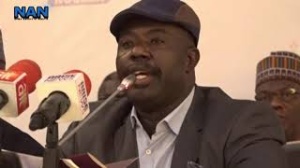Way Out Of High Costs Of Petrol, Diesel And Gas — New Telegraph Editorial

The rising fear of an impending fuel price hike again, is real. Empirical evidence on ground all point to it. In fact, recently petrol marketers under the aegis of the Natural Oil and Gas Suppliers’ Association of Nigeria (NOGASA) called for government intervention. The members added that they can no longer sustain the distribution of petrol and other products nationwide, because diesel, used to power their trucks, has escalated to N1, 100 per litre in many locations. That is up from roughly N700 earlier in the year, according to the association’s President, Mr Benneth Korie. Aviation fuel has also hit over N1, 000. The sad situation has exhibited the painful paradox of millions of Nigerians battling with the high costs of petroleum products, in a country abundantly blessed with crude oil.
The time is therefore right for our political leaders – past and present – to be put on the spot. They have to account for every kobo that has been expended on the Turn Around Maintenance (TAM) of the four refineries over the decades. According to the petroleum marketers the exponential rise in crude oil prices is attributed to the international market, with regards to the foreign exchange market which was over N990 to the dollar as at last week. Similarly, the landing cost of petrol had risen by 19.3 per cent to N596.93 per litre as at September 20, 2023, meanwhile it was about N500 per litre in July 2023, when the last pump price adjustment was effected across all retail outlets in Nigeria. Media reports had indicated the rise in crude oil prices by 7.5 per cent to $85.89 per barrel in August 2023, from $79.92 per barrel in July 2023. The depreciation of the naira to N775/dollar in the official market with inflation, standing at 22.79 per cent was also highlighted. All these factors cumulatively led to the increase in the landing cost of petrol to over N500 per litre in the domestic market. Not left out was the rise in the price of crude oil (Bonny Light) by 14.3 per cent to $97.17 per barrel. That was from $85 per barrel in August, 2023.
These disturbing trends have no doubt raised the pertinent questions. One of those is the rationale of removing the fuel subsidy without the desired focus on getting the refineries working. Instead, the President Bola Tinubu led government is apparently more interested in throwing money at persisting economic problems. For how long would the peanuts called palliatives ameliorate the suffering in the land? Why should the government say more than it does in identifying the oil thieves, currently being treated as the untouchables? Furthermore, why should the government keep fixing the selling price of petrol through the Nigerian National Petroleum Company Limited (NNPCL) at a time when the marketers need N20.4 billion to import 37.5 million litres of the product at the exchange rate of N773.98/dollar? And doing so means that they stand the risk of losing N260 million! In fact, analysts on the economy have discovered that in parts of the country where petrol costs N560 per litre, the importers would generate more than N21 billion as sales revenue but suffer a huge loss of N6.5 billion in the process of marketing the 28 million litres in Nigeria. These are traced to the huge burden of transactions with the freight (Lome-Lagos), Port charges, Nigerian Midstream and Downstream Petroleum Regulatory Authority (NMDPRA) levy, storage cost, marine insurance and tendering cost standing at N10.37, N7.37, N4.47, N2.58, N0.47, N0.36 and N0.06 per litre in that order. This is an abnormal situation in a country with four oil refineries.
Definitely, this sordid scenario cannot keep playing out in an oil-producing country. So, what is the way forward out of the sleazy, self-imposed oil field challenges? That is the million-naira question. As a credible way out of the woods, the government should speed up work on the NNPCL’s Port Harcourt refinery, which we are told will start operations in December 2023 – a month after the Dangote refinery should have begun operations. That is according to the President, Independent Petroleum Marketers Association of Nigeria (IPMAN), Elder Chinedu Okoronkwo. The import of this is that it will reduce reliance on foreign exchange and as well give more value to our naira. But there is more to it than the promises of these two refineries working. As the Director/CEO of the Centre for the Promotion of Private Enterprise (CPPE), Dr. Muda Yusuf, rightly suggested the Federal Government should address high energy cost, offer generous tax cuts on energy and power solutions and products to moderate energy costs. Similarly, the Nigerian Gas Association (NGA) is of the opinion that focus should shift to Liquefied Petroleum Gas (LPG) or Compressed Natural Gas (CNG), because they are more affordable, available, and more environmentally friendly. This is the way to go. Government is therefore urged to give a listening ear to these valid suggestions and act promptly and decisively to move the economy forward. That is instead of offering licenses to importers, to bring in petroleum products that are out of reach to the common man.



